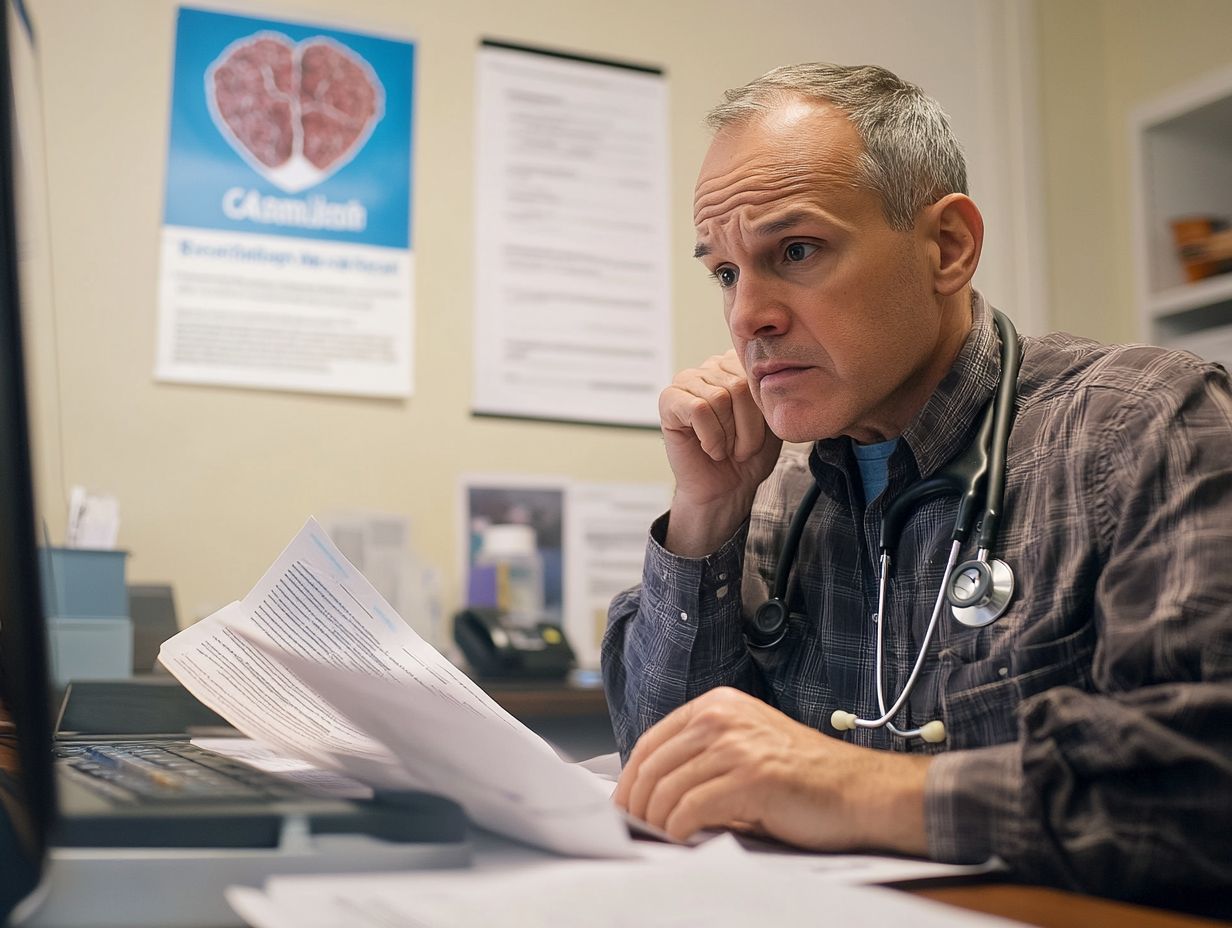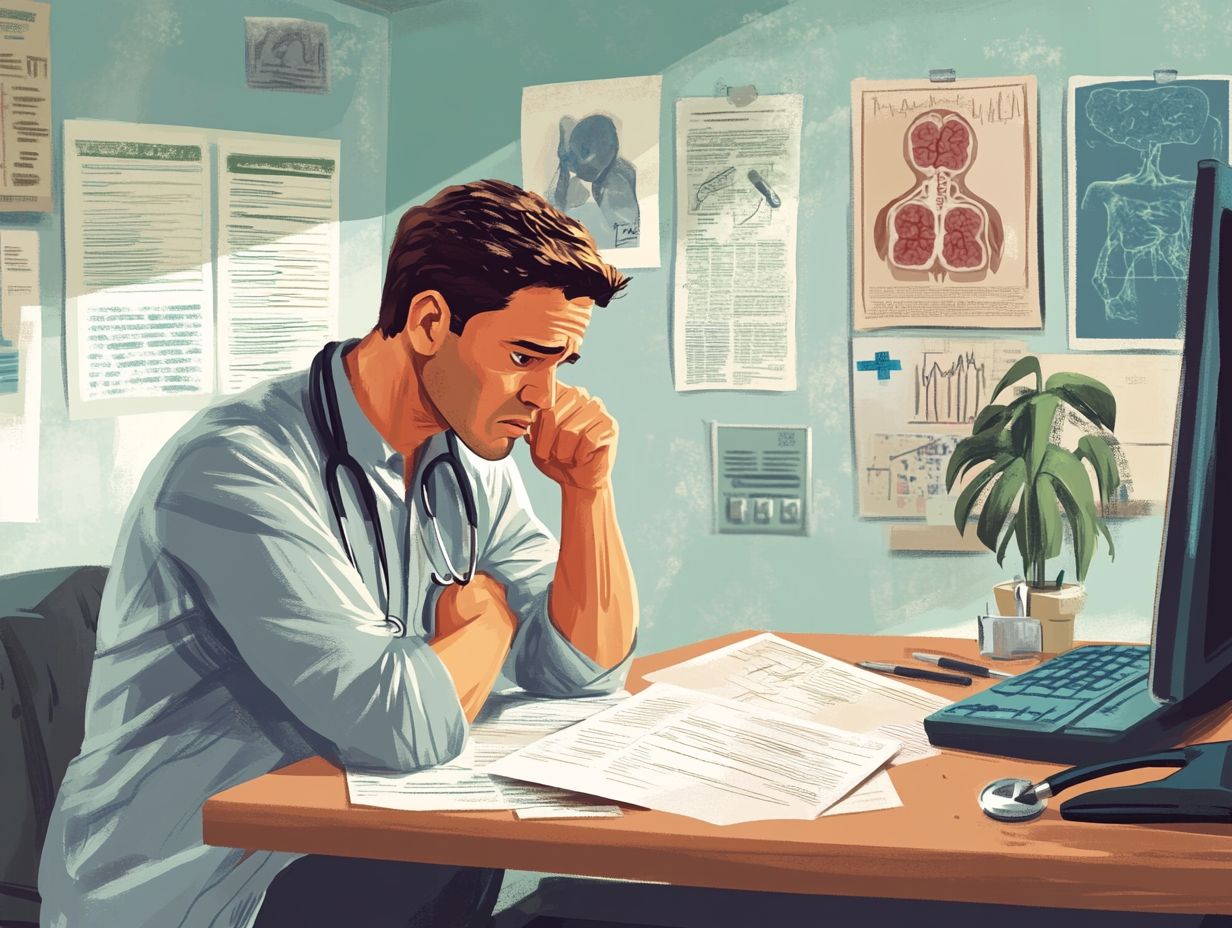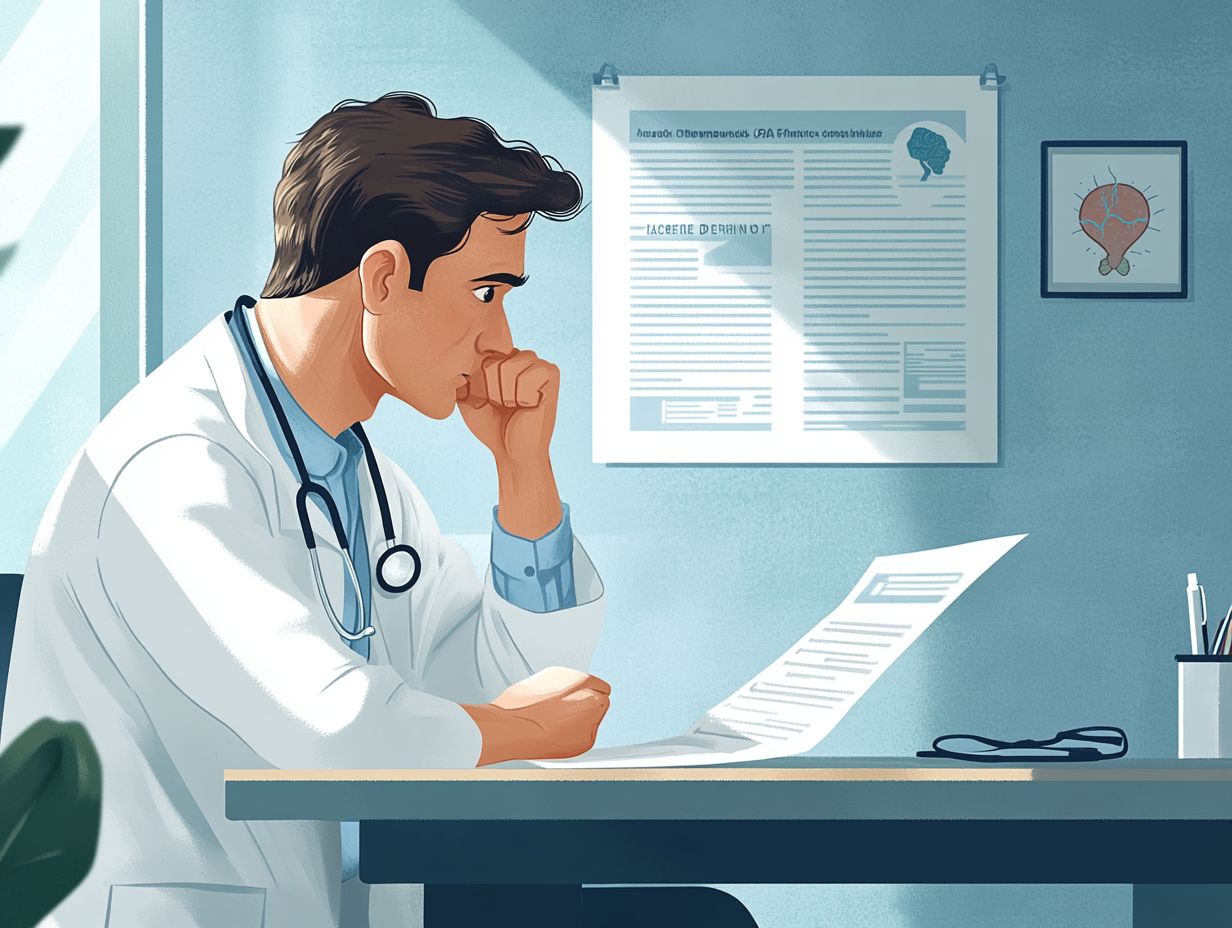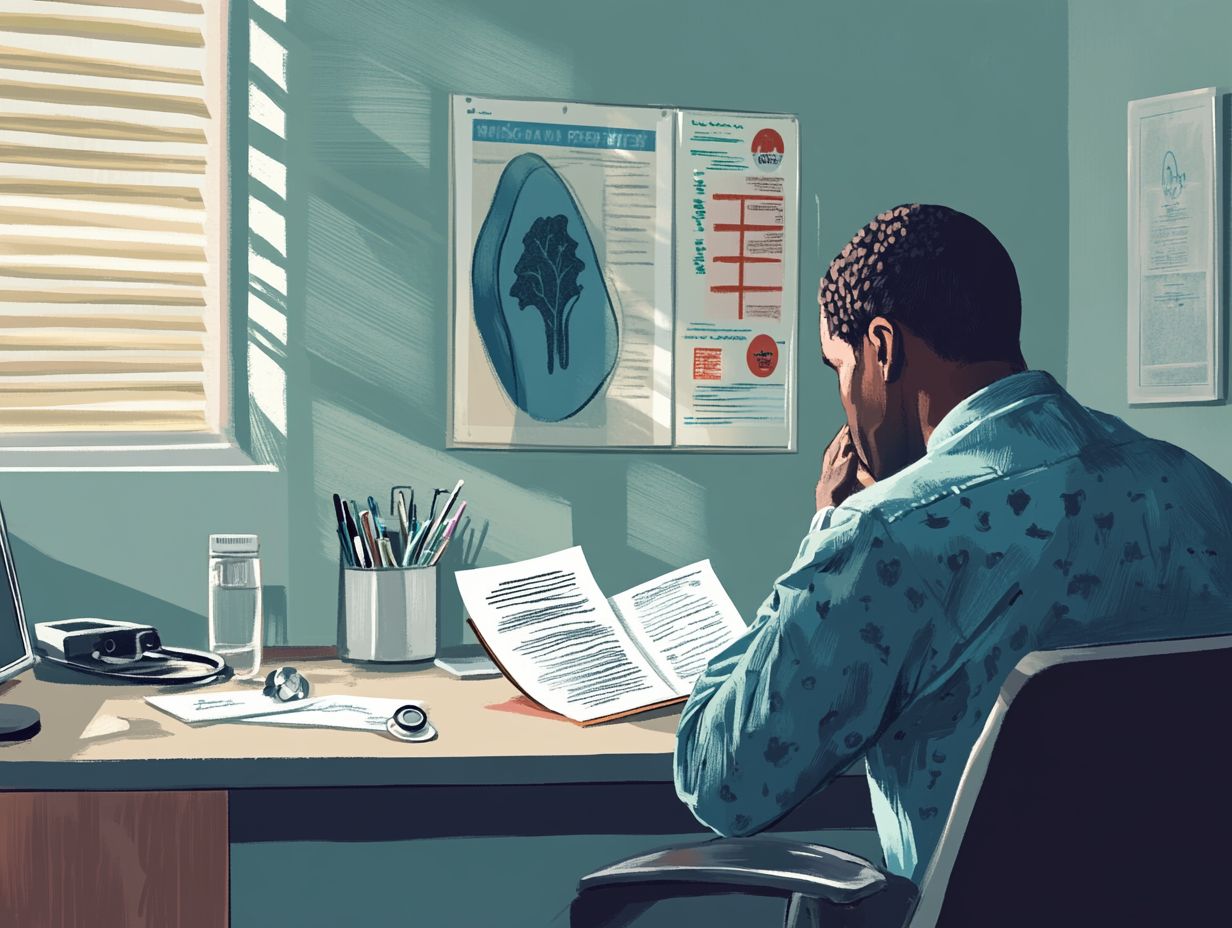Deciding whether to seek a second opinion for a cancer diagnosis is a significant step in ensuring comprehensive and confident healthcare decisions. Understanding the intricacies of a cancer diagnosis, from the type and stage determined through imaging, biopsies, and consultations with pathologists, is crucial in shaping a treatment plan.
Second opinions can be particularly beneficial when faced with complex diagnoses, uncertain treatment options, or recommendations for major surgeries. They offer the opportunity to confirm diagnoses, explore additional treatment avenues like clinical trials and new technologies, and increase confidence in the chosen medical path.
While obtaining a second opinion can present challenges such as communication issues and insurance hurdles, the potential benefits include tailored treatment plans and enhanced peace of mind. By navigating these roadblocks with the support of advocates, oncology social workers, and a strong network, patients can make informed decisions that align with their health goals and personal values.
Key Takeaways:
Understanding Cancer Diagnosis

Understanding cancer diagnosis involves methods to confirm cancer presence, including medical history, physical exams, and imaging techniques.
Specialists such as medical oncologists and surgical oncologists play a crucial role in determining the treatment plan based on the diagnosis.
Understanding cancer diagnosis involves methods to confirm cancer presence, including medical history, physical exams, and imaging techniques.
Cancer diagnosis determines cancer type and stage, guiding the treatment plan.
Patients should communicate with healthcare providers like medical oncologists and oncology social workers to understand their diagnosis and treatment options.
Types of Cancer and Diagnostic Process
Cancer types include:
- breast cancer
- lung cancer
- colorectal cancer
- prostate cancer
- uncommon cancers such as sarcomas and lymphomas
The cancer diagnostic process involves imaging studies like CT scans and MRIs, biopsies, and consultations with pathologists and other specialists.
Pathologists analyze biopsy samples to identify cancer type and stage.
Cancer centers like UCLA Health and the University of Colorado Cancer Center utilize advanced technologies and multidisciplinary teams to ensure accurate diagnosis and treatment planning.
When to Consider a Second Opinion
Consider a second opinion when faced with a complex medical diagnosis, uncertain treatment options, or significant surgery recommendations to ensure comprehensive understanding and confidence in medical decisions. Consulting with another specialist or oncologist can be crucial in such cases.
Consider a second opinion when faced with a complex medical diagnosis, uncertain treatment options, or significant surgery recommendations to ensure comprehensive understanding and confidence in medical decisions.
Situations that May Warrant a Second Opinion
Situations that may warrant a second opinion include aggressive surgery proposals, unfamiliar cancer treatments like chemotherapy or radiation therapy, and conflicting test results.
A second opinion is also advisable when patients struggle to understand treatment options or face differing recommendations from multiple specialists.
Uncertainty about the proposed treatment approach or timeline can prompt a patient to seek a second opinion for clarity and confidence. Engaging with multidisciplinary teams or a tumor board can also provide comprehensive insights.
How to Get a Second Opinion

To get a second opinion, consult a different healthcare provider to review medical records and treatment plans. This might include visiting a different cancer center known for its expertise.
To get a second opinion, consult a different healthcare provider to review medical records and treatment plans.
The process involves discussing your diagnosis and exploring alternative treatment options.
Verify healthcare services and insurance coverage for the second consultation.
Steps to Take and Questions to Ask
When seeking a second opinion, patients should ask about the new doctor’s treatment experience, involvement in clinical trials, and alternative therapies. It’s also essential to check if the doctor is part of a medical society like the American Cancer Society.
Patients should also inquire about risks, benefits, and alignment with health goals.
Documenting questions and responses helps in making informed decisions.
Benefits of Seeking a Second Opinion
Seeking a second opinion provides benefits including access to alternative treatment options, confirmation of diagnosis, and increased confidence in making healthcare decisions. It also offers reassurance and peace of mind.
Seeking a second opinion provides benefits including access to alternative treatment options, confirmation of diagnosis, and increased confidence in making healthcare decisions.
Second opinions can reveal new insights about a condition, validate a proposed treatment plan, and reduce uncertainty for patients.
Advantages for Treatment and Peace of Mind
Obtaining a second opinion provides tailored treatment plans, enhances patient comfort, and offers reassurance during cancer care. Expert opinions from specialists like Wells Messersmith, MD, can be invaluable.
Obtaining a second opinion provides tailored treatment plans, enhances patient comfort, and offers reassurance during cancer care.
Second opinions can identify alternative therapies and give the power to patients in decision-making.
Seeking additional perspectives reduces fears and increases confidence in treatment choices, leading to a more positive patient experience.
Potential Challenges and Risks

Challenges and risks of seeking a second opinion include communication issues, potential misunderstandings about patient rights, and logistical problems in transferring medical records. Navigating the healthcare system can also be a challenge.
In healthcare, these challenges can complicate obtaining accurate and timely second opinions.
Possible Roadblocks and How to Handle Them
Roadblocks to obtaining a second opinion include insurance coverage issues, healthcare system navigation challenges, and lack of understanding of patient rights.
Handling these roadblocks involves learning about insurance policies, advocacy support, and building a support network for guidance.
Patients can overcome these challenges by knowing their coverage, seeking help from advocates, and collaborating with healthcare providers. Oncology social workers can also assist in navigating the healthcare system.
Making a Decision
Making a decision about treatment options involves evaluating medical recommendations, personal comfort levels, and available support systems. Consulting with a multidisciplinary team can provide comprehensive care options.
Patients should consider these factors to make informed treatment choices.
Factors to Consider and Resources for Support
When making treatment decisions for cancer, patients should consider the type of cancer, available treatment options, healthcare service expertise, and their comfort with proposed plans. Institutions like National Cancer Institute offer valuable resources for support.
Potential side effects from therapies like chemotherapy and radiation therapy, quality of life alignment with personal values, and lifestyle are critical factors.
A strong support network, including family, friends, and support groups, provides essential emotional and practical assistance.
Frequently Asked Questions

Do I Need a Second Opinion for My Cancer Diagnosis?
It is always recommended to seek a second opinion for a cancer diagnosis, especially if it is a serious or rare type of cancer. Institutions like the Huntsman Cancer Institute can provide comprehensive reviews.
It is always recommended to seek a second opinion for a cancer diagnosis, especially if it is a serious or rare type of cancer.
Why should I get a second opinion for my cancer diagnosis?
Getting a second opinion can provide you with more information and a different perspective on your cancer diagnosis, helping you make more informed decisions about your treatment options.
Who should I seek a second opinion from?
You can seek a second opinion from another oncologist, preferably one who specializes in your specific type of cancer. Consulting with a medical oncologist or surgical oncologist is advised.
Is it rude to ask for a second opinion?
No, it is not rude to ask for a second opinion. It is your right as a patient to seek different opinions, including from renowned institutions like UCLA Health, and make the best decision for your health.
How do I go about getting a second opinion?
You can ask your current oncologist for a referral to another specialist, or you can research and find another oncologist on your own.
Will getting a second opinion delay my treatment?
While seeking a second opinion may delay the start of your treatment, it is important to make sure you have all the necessary information and are comfortable with your treatment plan. Your health should always come first, and getting an expert opinion can be crucial.





